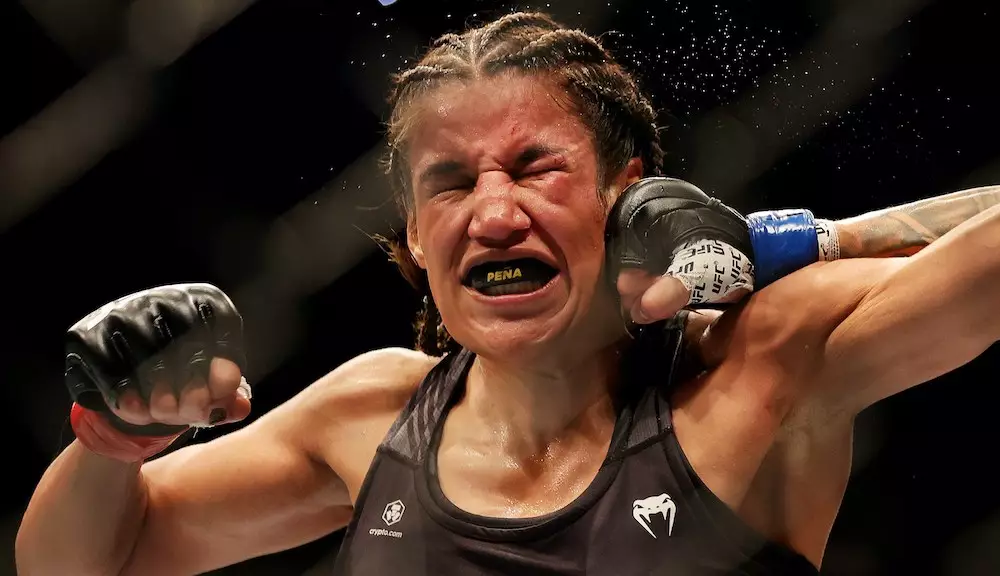In the world of mixed martial arts (MMA), the impact of fighting at high altitudes cannot be overstated. The upcoming clash between Raquel Pennington and Julianna Peña at UFC 307 not only brings the excitement of a championship bout but also highlights the significant challenge that altitude poses to athletes. Fighters preparing for a match in Salt Lake City, which is known for its elevation, must consider how their bodies will react to the thinner air. This geographical factor often becomes a critical element in determining the outcome of the fight.
Raquel Pennington, the reigning bantamweight champion, has publicly expressed her reservations regarding Peña’s decision to arrive in Salt Lake City shortly before fight week. According to Pennington, who has trained at high altitudes in Colorado, the physical demands placed on an athlete in such environments are substantial. She believes that failing to acclimate adequately can hinder performance, especially when competing at the highest levels of MMA. Drawing from her experiences, Pennington’s insights shed light on the importance of preparation and the potential missteps athletes can make when underestimating altitude.
Elevation Effects: Physiological Considerations
The physiological effects of altitude on the human body are profound and can dramatically influence an athlete’s performance. As the elevation increases, the amount of oxygen available to the body decreases, leading to conditions like altitude sickness for those who are unaccustomed to such environments. Pennington’s emphasis on this aspect is supported by a wealth of research that indicates how training at high altitudes can enhance an athlete’s endurance and adaptability. As fighters push their limits, learning to manage breath control and energy expenditure becomes paramount.
For fighters like Pennington, acclimatization is not merely a checkbox in their training regimen—it is fundamental to their success. The distinction she made between altitude training in Colorado and lower elevations underscores the significance of gradual acclimatization. Athletes arriving too close to competition may struggle, as their bodies are unprepared for the demands of high-performance activities under less-than-ideal oxygen conditions. Pennington’s perspective serves as a reminder that even the most skilled fighters must heed the intricacies of altitude when preparing for battle.
As UFC 307 approaches, the storyline intertwining the physical challenges of altitude and the strategies of both fighters adds an intriguing layer to the match. While Julianna Peña may have her reasons for a late arrival, Pennington’s experience suggests that adaptation to elevation could significantly influence the fight’s outcome. Understanding how altitude affects performance may provide fighters with a competitive edge and exemplifies the meticulous nature of preparation in the sport of MMA. For fans and athletes alike, this fight transcends mere combat; it encapsulates the constant interplay between human capability and the environment in which it unfolds.

